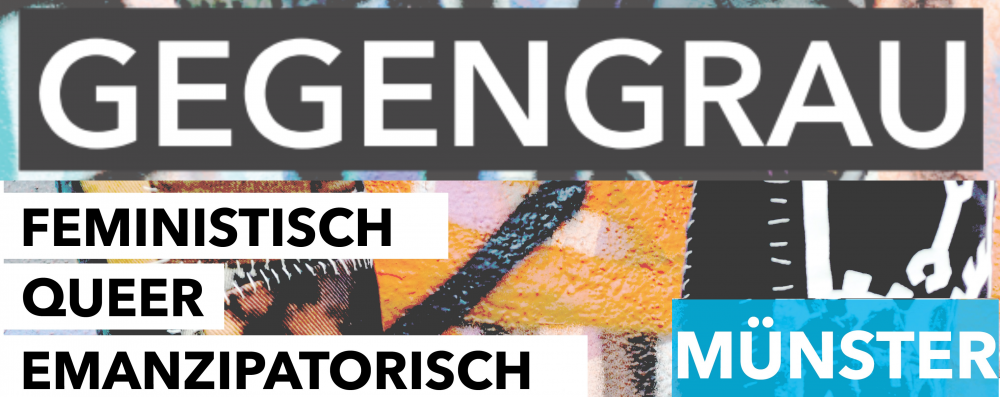Text auf Deutsch: hier klicken
First of all we would like to introduce ourselves to you, to let you know who “we” are and who’s organizing queerfeMS 2017. We can imagine that it might be very important for some people to know about our experiences and positioning before deciding to participate at queerfeMS. We will try to include many different aspects about our backgrounds. However, we are fully aware that the following description is not complete and will probably never be complete. But if you would like to know more about us, then do not hesitate to contact us. We are always thankful for comments and critique! Withregard to the team and the entire event it is important to us to create an atmosphere of tolerance for mistakes and imperfections.
Furthermore we have found a lot of support among our friends and many people in solidarity with usin our surroundings. Their perspectives and experiences have also influenced the preparations of queerfeMS, even though they will not be explicitly mentioned here. To all of you: thank you very much!
****************
Within our team there are several aspects that lead to certain advantages and privileges in society as a whole. First off, we are all white people that have or had access to academic education. We have passports that permit us to live safely in Germany, without fear of deportation, and to travel around the world. We do not feel excluded and we have never had to fight to be taken seriously because of our age, so we have not been subjected to “adultism” or “ageism”. We are not affected by Gadje-racism and antiislamic racism. Many of us have a Christian background and/or are atheists or agnostics. Most of our team have not made any negative or excluding experiences due to classism. Some of us define themselves as cis, so their gender identity matches the sex that they were assigned at birth. We are not affected negatively by “transmisogyny”, a form of discrimination against trans femininity. Furthermore, many individuals of the team do not struggle with being disabled mentally and/or physically by society or the direct social environment.. Some of us describe ourselves as heterosexual or probably heterosexual, leading to lessernegative personal experiences concerning heteronormativity.
In our everyday life and especially during the preparations for queerfeMS we have always tried to reflect these advantages and privileges and to reach more sensibility when dealing with these aspects. By defining our positioning we want to shed light on societal categories and the structures of domination causing and determining these categorizations.
Our team also consists of individuals that have made or are permanently suffering from negative experiences of discrimination, exclusion and devaluation by our society. Some of us define ourselves as trans, non-binary and/or agender, or question their gender identity. All of us are negatively affected by sexism and patriarchal structures. There are individuals who struggle with consequences of classism. Some have a Jewish background. Furthermore, we have some individuals among us who are chronically ill and/or suffer from physical impairments or describe themselves as neurodiverse. Several are queer or queer-loving and/or pansexual or lesbian and negatively affected by heteronormativity. Some of us, who are non-monogamous or polyamorous and/or are living in relationship anarchy, make discriminating experiences.
We hope that queerfeMS will be a place for reciprocal support, empowerment and a source of courage for all positions that do not find enough appreciation in society far too often. We want to learn with and from each other and to find ways to combine our individual struggles. It is our wish for us and all participants of queerfeMS to gain more sensitivity and awareness for different forms of discrimination and oppression caused by and reiterating societal structures and to establish more solidarity for other perspectives and realities.
„There is no hierarchy of oppression“ (Audre Lorde)
„Empowerment should never cause discrimination against others!“ (FaulenzA, English translation)
Comments on the style of writing:
- The term “white” is „an analytical categorization of a positioning that is privileged by the consequences of racism and is not a positive title of an identity” (translated in English from w_orten & meer). Based on the book “Mythen, Masken und Subjekte: kritische Weißseinsforschung in Deutschland“ by Maisha Eggers, Grada Kilomba, Peggy Piesche and Susan Arndt we write the term in italics to indicate its construction. In contrast to the term “Black” it is “not a political self-designation established in the course of a resistance situation (translated in English from Noah Sow: Deutschland Schwarz Weiß), that is why we do not capitalize the term.
